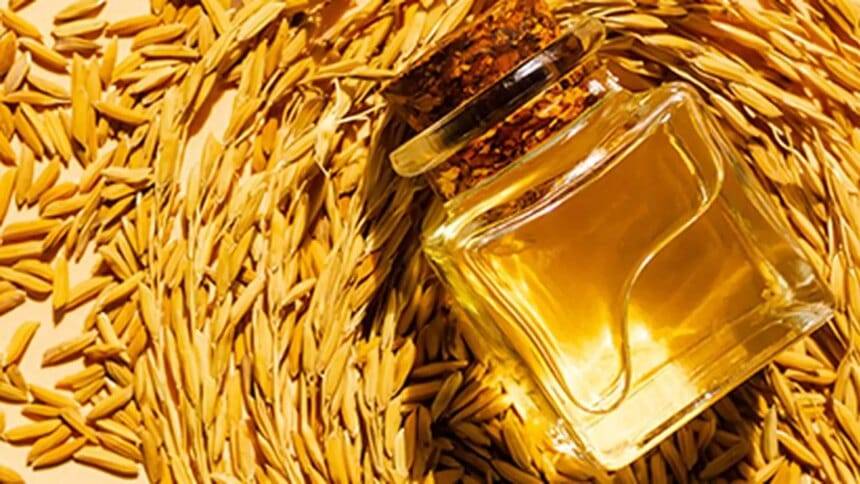Main Points In Hindi (मुख्य बातें – हिंदी में)
यहां पर दिए गए लेख के मुख्य बिंदु निम्नलिखित हैं:
-
डीओआरबी के निर्यात पर प्रतिबंध: सॉल्वेंट एक्सट्रैक्टर्स एसोसिएशन ऑफ इंडिया (SEA) ने सरकार से डी-ऑयल चावल की भूसी (डीओआरबी) के निर्यात पर लगाए गए प्रतिबंध का पुनर्मूल्यांकन करने का आग्रह किया है, क्योंकि इसका कई क्षेत्रों पर नकारात्मक प्रभाव पड़ रहा है।
-
भारत का प्रोटीन अधिशेष: SEA के अध्यक्ष संजीव अस्थाना ने बताया कि भारत प्रोटीन भोजन का अधिशेष देश है, और निर्यात पर प्रतिबंध ने किसानों, प्रोसेसरों और निर्यातकों के लिए समस्याएं खड़ी कर दी हैं।
-
आर्थिक प्रभाव: निर्यात प्रतिबंध के कारण चावल की भूसी की कीमत में गिरावट आई है और इससे चावल मिलिंग उद्योग पर प्रतिकूल प्रभाव पड़ा है। इससे संबंधित उद्योगों को स्थायी रोजगार और विदेशी मुद्रा अर्जन में भी कमी आई है।
-
विकासशील निर्यात बाजार: पिछले 30 वर्षों में भारत ने डीओआरबी का निर्यात करके अंतरराष्ट्रीय बाजार में एक विश्वसनीय आपूर्तिकर्ता के रूप में अपनी पहचान बनाई है। अचानक प्रतिबंध ने अन्य देशों को भारतीय बाजार में प्रतिस्पर्धा करने का मौका दिया है।
- सरकारी नीतियों पर विचार: SEA ने सरकार से सभी हितधारकों के व्यापक हित में डीओआरबी के निर्यात प्रतिबंध को हटाने के लिए कहा है, अन्यथा यह स्थिति खाद्य उत्पादों की कीमतों को और नीचे ला सकती है।
Main Points In English(मुख्य बातें – अंग्रेज़ी में)
Here are the main points from the article discussing the Solvent Extractors Association of India’s (SEA) request to the government regarding the export ban on de-oiled rice bran (DORB):


-
Request for Re-evaluation: The SEA has urged the government to reconsider the immediate export ban on de-oiled rice bran (DORB), citing potential adverse effects on various sectors, including rice farmers and processors.
-
Impact on Farmers and Processors: The ban on DORB exports is negatively affecting rice farmers and the processing and exporting industries, hindering their ability to achieve better returns on their produce.
-
Market Position and Competitors: India has developed a reliable export market for DORB over the past 30 years, primarily servicing countries like Vietnam and Thailand. The sudden export ban has given other competing countries the opportunity to capture the Indian export market.
-
Economic Ramifications: The SEA highlights that the ban has hindered continuous processing and production of vegetable oils, reduced employment opportunities, and led to a significant drop in DORB prices, from ₹17,000 to ₹10,000 per ton since the ban was implemented.
- Broader Industry Concerns: There is a concern that if the DORB export ban remains, it could lead to further oversupply in the market, leading to even lower prices and jeopardizing government support prices for oilseeds. The SEA expresses the need for the government to consider all stakeholders’ interests and remove the restriction on DORB exports.
Complete News In Hindi(पूरी खबर – हिंदी में)
सॉल्वेंट एक्सट्रैक्टर्स एसोसिएशन ऑफ इंडिया (SEA) सरकार से डी-ऑयल चावल की भूसी (डीओआरबी) के निर्यात पर प्रतिबंध का तत्काल पुनर्मूल्यांकन करने का आग्रह किया है।
विभिन्न केंद्रीय मंत्रियों को लिखे पत्र में एसईए ने कहा कि इस फैसले के कई क्षेत्रों पर दूरगामी नकारात्मक परिणाम हो सकते हैं।
एसईए के अध्यक्ष संजीव अस्थाना ने कहा कि भारत एक है प्रोटीन (तेल भोजन) अधिशेष देश और डीओआरबी का कुल निर्यात इसके उत्पादन के 10 प्रतिशत से कम था। इसके निर्यात पर प्रतिबंध ने धान किसानों के साथ-साथ प्रोसेसर और निर्यातकों पर प्रतिकूल प्रभाव डाला है, जिससे उन्हें अपनी उपज पर बेहतर रिटर्न प्राप्त करने में बाधा उत्पन्न हुई है।
भोजन (डीओआरबी और सोया और रेपसीड जैसे अन्य भोजन) का निर्यात करने से उद्योग को अधिशेष भोजन की आसान निकासी से लाभ होता है। इससे निरंतर प्रसंस्करण, बेहतर क्षमता उपयोग, निरंतर वनस्पति तेल उत्पादन, रोजगार में वृद्धि और मूल्यवान विदेशी मुद्रा की कमाई के साथ महत्वपूर्ण मूल्यवर्धन होता है।
यह कहते हुए कि भारत ने पिछले 30 वर्षों में डीओआरबी के लिए सफलतापूर्वक निर्यात बाजार विकसित किया है, उन्होंने कहा कि यह मुख्य रूप से वियतनाम, थाईलैंड, बांग्लादेश और अन्य एशियाई देशों को सेवा प्रदान करता है, जो अंतरराष्ट्रीय बाजार में एक विश्वसनीय आपूर्तिकर्ता के रूप में स्थित है।
उन्होंने कहा, “डीओआरबी के निर्यात पर इस अचानक प्रतिबंध ने अन्य प्रतिस्पर्धी देशों को भारतीय निर्यात बाजार पर कब्जा करने का मौका दिया है।”
पूर्वी राज्य, विशेष रूप से पश्चिम बंगाल और ओडिशा, डीओआरबी के महत्वपूर्ण उत्पादक हैं। देश के इस हिस्से में पशु चारा उद्योग अविकसित है और मांग सीमित है।
उन्होंने कहा, पूर्वी भारत से डीओआरबी को भारत के दक्षिणी या पश्चिमी हिस्सों जैसे प्रमुख उपभोक्ता क्षेत्रों में ले जाने के लिए अत्यधिक माल ढुलाई शुल्क निर्यात को क्षेत्र में डीओआरबी के निपटान का सबसे सुविधाजनक और लागत प्रभावी तरीका बनाता है।
पूर्वी भारत में चावल की भूसी प्रोसेसरों को डीओआरबी के निपटान के लिए संकट का सामना करना पड़ रहा है और उन्हें क्षमता उपयोग बंद करने या कम करने के लिए मजबूर होना पड़ रहा है। इससे चावल मिलिंग उद्योग पर प्रतिकूल प्रभाव पड़ रहा है और चावल की भूसी के तेल का उत्पादन भी कम हो रहा है।
उन्होंने कहा कि जुलाई 2023 में डीओआरबी पर निर्यात प्रतिबंध का कारण पशु आहार की ऊंची लागत के कारण दूध की ऊंची कीमतें थीं। हालाँकि, दूध की कीमत में DORB की लागत नाममात्र है।
अस्थाना ने कहा कि जुलाई 2023 में डीओआरबी पर निर्यात प्रतिबंध लगाए जाने के बाद से देश भर में दूध की कीमतों में लगभग कोई कमी नहीं आई है बल्कि इसमें बढ़ोतरी हुई है।
इस बीच, डीओआरबी की कीमत 28 जुलाई 2023 (निर्यात प्रतिबंध अधिसूचना जारी करने की तारीख) को प्रचलित लगभग ₹17,000 प्रति टन से घटकर वर्तमान में ₹10,000 प्रति टन हो गई।
नए सीजन में धान की बंपर फसल के कारण प्रसंस्करण के लिए चावल की भूसी की उपलब्धता बढ़ने से इसमें और गिरावट आने की संभावना है। उन्होंने कहा, ”हमारा अब भी मानना है कि यह प्रतिबंध दूध की कीमतों में कमी से संबंधित नहीं है, बल्कि उद्योग पर नकारात्मक प्रभाव डाल रहा है।”
उन्होंने डीओआरबी पर निर्यात प्रतिबंध हटाने पर विचार करने के लिए एक अन्य कारक के रूप में इथेनॉल उद्योग के उप-उत्पाद, सूखे डिस्टिलर अनाज ठोस (मक्का और चावल से) की अधिक आपूर्ति को जिम्मेदार ठहराया।
यह डीडीजीएस (सूखे डिस्टिलर अनाज ठोस) मात्रा और मूल्य निर्धारण में सोया, रेपसीड और डी-ऑयल चावल की भूसी जैसे अन्य तेल भोजन के साथ फ़ीड उद्योग (मवेशी, मुर्गी और जल) के लिए एक वैकल्पिक कच्चे माल के रूप में प्रतिस्पर्धा कर रहा है।
बाजार में वर्तमान में मक्का डीडीजीएस की भारी आपूर्ति लगभग 12-14 रुपये प्रति किलोग्राम है। उन्होंने कहा कि इसका कारण इथेनॉल विनिर्माण पर सरकार की नीति और इथेनॉल खरीद की लागत प्लस मूल्य निर्धारण है।
अपशिष्ट उपोत्पाद होने के कारण, डीडीजीएस की इस प्रचलित कम लागत और अतिरिक्त आपूर्ति ने अन्य भोजन को काफी हद तक बदल दिया है और भोजन/डीओआरबी में अतिरिक्त अधिशेष की स्थिति पैदा कर दी है। उन्होंने कहा कि उद्योग के अनुमान के अनुसार, डीडीजीएस का वर्तमान उत्पादन लगभग 2 मिलियन टन (एमटी) है जो एक साल में बढ़कर 3.5-4 मिलियन टन हो जाएगा।
यदि डीओआरबी सहित डी-ऑयलयुक्त भोजन के निर्यात को प्रोत्साहित/खोला नहीं जाता है तो डीओआरबी और अन्य भोजन (सोया और रेपसीड) में गंभीर बाढ़ आ सकती है और कीमतों में और कमी आ सकती है।
उन्होंने कहा, इससे सरकार द्वारा तिलहनों में एमएसपी वृद्धि को भी नकारा जा सकता है और सरकारी एजेंसियों द्वारा खरीद के अभाव में तिलहनों की कीमतें उनके समर्थन स्तर से काफी नीचे जा सकती हैं।
एसईए अध्यक्ष ने सरकार से सभी हितधारकों के व्यापक हित में बिना तेल वाले चावल की भूसी के निर्यात पर लगाए गए प्रतिबंध को तुरंत हटाने का अनुरोध किया।
Complete News In English(पूरी खबर – अंग्रेज़ी में)
The Solvent Extractors Association of India (SEA) has urged the government to urgently reassess its ban on the export of De-Oiled Rice Bran (DORB). In letters sent to various central ministers, the SEA highlighted that this decision could have long-term negative impacts on multiple sectors.
SEA President Sanjeev Asthana noted that India is a surplus producer of protein (oil meal) and that the total export of DORB accounted for less than 10% of its production. The export ban has adversely affected rice farmers, processors, and exporters, hindering their ability to achieve better returns for their produce.


Exporting food products like DORB, along with others like soybean and rapeseed, provides the industry with an outlet to manage surplus, thus promoting continuous processing, better utilization of capacity, consistent vegetable oil production, job growth, and valuable foreign exchange earnings.
Asthana mentioned that India has successfully developed export markets for DORB over the last 30 years, primarily serving countries such as Vietnam, Thailand, and Bangladesh, establishing itself as a reliable supplier in the international market. However, the sudden ban on DORB exports has given competitive countries an opportunity to capture the Indian export market.
He pointed out that East India, especially West Bengal and Odisha, is a major producer of DORB, but the demand in this region is limited due to an underdeveloped animal feed industry. High freight charges make it costly to transport DORB from East India to major consumer areas in the South and West, creating challenges for processors in that region.
Since the imposition of the export ban in July 2023, there has been no significant decrease in milk prices nationwide; in fact, prices have increased. In contrast, the price of DORB has dropped from around ₹17,000 per ton to approximately ₹10,000 per ton.
Asthana also cited an increase in the availability of rice bran for processing due to a bumper crop, which is likely to further decrease prices. He believes that the export ban is negatively impacting the industry rather than affecting dairy prices.
The SEA president called for a reconsideration of the DORB export ban, stating that if not addressed, there could be a significant surplus of DORB and other oil meals, leading to further price declines. He emphasized that without exports, the increased minimum support price (MSP) for oilseeds by the government could be undermined, driving prices below support levels.
In summary, SEA is requesting the government to lift the ban on DORB exports for the benefit of all stakeholders involved.
Source link








